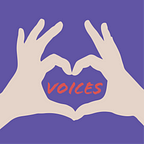‘I Flood and I Vote’
For this Lower Ninth Ward community leader, flooding is a political problem
By Rev. Richard Bell
We are a community that is shaped by floods. The foundations of our homes are warped by floodwaters and our friendships are strengthened by them. But politics has not yet caught up to the reality of threats of flooding that we are living with. That needs to change.
When floods come, we know the only people we can count on is us. You have to live here to understand that. In New Orleans, communities constantly struck by climate crises have been organizing to keep ourselves safe and to survive. I belong to one such group called A Community Voice. We can see how climate change is making things harder. I’ve lived in New Orleans for 65 years and over my lifetime, the climate has changed. Our winters aren’t as cold anymore, and the Gulf isn’t cooling down like it used to. Now we have hot, hot summers and the heat in the Gulf acts like a pressure cooker. More heat means more rain, and more severe flooding.
I was on military active duty when Katrina hit. Now, I consider myself on active duty every time a storm starts spinning towards us. I try to really monitor the weather, and help people make wise choices. Floods are the most common natural disasters in the US, and they are one of the most deadly.
Every winter I throw a big party for neighbors, family and friends — my extended family. Gathering together strengthens the bonds we have with each other. We also organize community meetings about hurricane preparedness and we invite our mayor and city council. Sometimes they show up, but most times they don’t. We can’t always rely on pumps to keep us dry or on elected officials to address our concerns, so for us, “flood infrastructure” looks like persistent community organizing with monthly meetings and actions, neighbors checking on neighbors, and working with churches to make sure seniors and veterans have meals and families are safe during storms.
This type of community outreach is going to be almost impossible as New Orleans is consumed by Coronavirus. We are trying to find new ways of staying connected with weekly A Community Voice conference calls, while this virus keeps us apart. But with flood season upon us and hurricane season a few weeks away, communities that were already on the frontlines of climate change are more vulnerable than ever.
Last month, the National Oceanic and Atmospheric Administration predicted another severe flood season. States along the Mississippi River face the floods that could block roads, soak homes, and possibly displace families. When a hurricane hits, we may be sandwiched between water flowing from upstream and storm surge coming in from the coast. The Lower Ninth Ward is especially unsafe due to problems with the bridges that connect us to the highways we would need during an evacuation. What happens if an evacuation order conflicts with a quarantine order? These are questions that we are all asking ourselves and there are no clear answers.
Flooding is more than a climate problem; it’s also a political problem. We need elected leaders to take this threat seriously, to understand that climate change, like a pandemic, compounds existing vulnerabilities, and to prioritize the safety of communities like mine. We need to elect leaders with climate plans that match the seriousness of what we’ve been dealing with, because these problems are only going to get worse.
I wear a shirt that says, “I flood and I vote.” The shirt connects me to people all over the country who survived major floods or are living with chronic flooding.
This network of flood survivors is called Higher Ground, and it includes people whose walls are moldy from water damage, who have been traumatized by howling winds or buckling ceilings or the ocean pressed up against their windows. People who lost family photo albums. People who are still living in a FEMA trailer in their own backyard. People stressed out over whether to stay or evacuate and people who are sick of their communities and their experiences being written off.
We live in different states and come from different backgrounds, but we are united by flooding, and we also vote.
Rev. Richard Bell lives in the Lower Ninth Ward in New Orleans, where he organizes with his neighbors to prepare for and address severe flooding.
